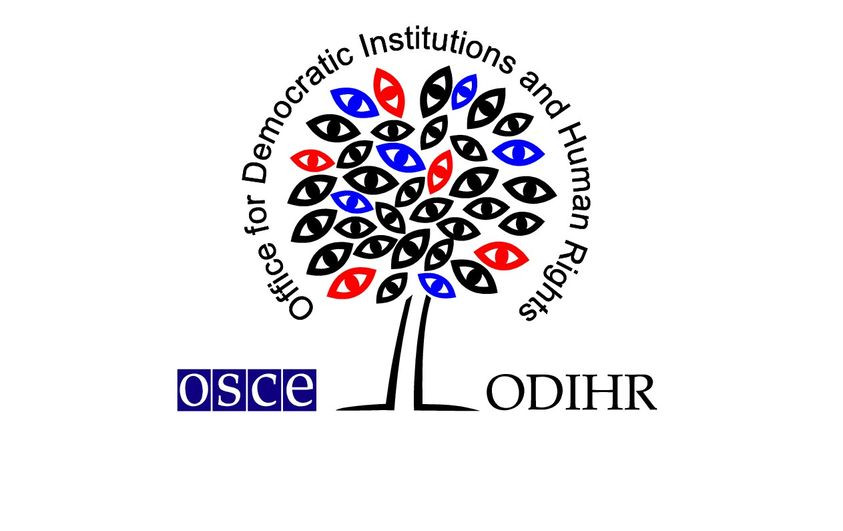The OSCE Office for Democratic Institutions and Human Rights (ODIHR) has produced a legal report concerning the “Foreign Agents” draft laws introduced in the Georgian Parliament in February 2023. The report was prepared in response to requests submitted by the Public Defender on February 24 and March 6. The assessment of these initiatives by ODIHR was negative, according to a statement from the Ombudsman issued on August 9.
The Ombudsman’s statement notes that following large social protests, the deliberation of the aforementioned draft laws within the Georgian Parliament was halted. Specifically, one of the draft laws was withdrawn, while the other was discarded during the second reading. Despite these developments, and due to the significance of the matter at hand, OSCE/ODIHR continued to analyze the issue and presented an extensive overview of human rights standards along with associated recommendations.
The document primarily concentrates on the adverse impacts of the draft laws on fundamental human rights. These rights include freedom of association, freedom of expression, the right to privacy, participation in public affairs, and protection from discrimination. “The Note also reviews the US and Australian legislations. It is emphasized that they are fundamentally different cases, have an entirely different goal and scale, which is why they do not represent relevant comparative examples in the Georgian context,” – reads the statement by the Public Defender of Georgia.
OSCE/ODIHR’s Legal Note on “Foreign Agents” Draft-Laws
The “Note on Legislative Initiatives on Transparency and Regulation of Associations Funded from Abroad or so-called ‘Foreign Agents Laws’ and Similar Legislation and their Compliance with International Human Rights Standards” opens by highlighting that the fundamental right to freedom of association is integral to a vibrant and participatory democracy and is intertwined with various human rights. Essential to this right is access to diverse funding sources, including international and foreign funding.
Nevertheless, it points out that certain nations regard foreign funding with suspicion. The Notes notes that “overall, the aim of so-called “foreign agents laws” or similar legislation is generally to seek to increase the scrutiny of such funding and of the activities of the recipient associations by introducing new obligations for such associations such as separate and generally burdensome registration, labelling, reporting, accounting and publication/disclosure requirements”, etc.
The Note stresses that these regulations often fall short of meeting the rigorous criteria established by international human rights law. These criteria dictate that constraints on freedom of association must be lawful, pursue legitimate objectives, demonstrate proportionality and necessity within a democratic society, and refrain from discrimination. Additionally, the Note draws upon comparative viewpoints, regional legal precedents, and authoritative recommendations to offer supplementary insight on this issue.
The assessment finds that the rationale for implementing legislative initiatives related to “foreign agents” laws often lacks evidence of a tangible, current, or serious threat to national interests or democracy. Adequate risk-based evaluations of the civil society sector, confirming NGO involvement in criminal activities, are frequently absent.
Moreover, national justifications for such legislative initiatives typically fall short of being “relevant and sufficient.” They fail to demonstrate insufficiencies in existing legal frameworks and the appropriateness of proposed measures. “An abstract assumption that all funds originating from abroad constitute a potential threat to national interests is incompatible with international human rights standards,” – reads the Note.
It is also noted that lack of proper reasoning for differential treatment based on funding’s foreign origin suggests potential discrimination. Regulations on associations are often stricter than those on business entities, without clear explanations. In addition, the report highlights that “the legal drafters usually fail to show that they have assessed the potential negative impact of a legislation on associations or considered other legal alternatives and selected the least intrusive measures with regard to the protection of fundamental rights,” adding that aiming for “transparency” or “publicity” of association funding isn’t inherently a legitimate aim, though it could be under specific circumstances related to public order or preventing crimes.
The Note emphasizes that objectives like countering money laundering or terrorism financing don’t automatically justify new reporting obligations for all associations. References to foreign laws like the United States Foreign Agents Registration Act (FARA) and Australian Foreign Influence Transparency Scheme Act (FITS) aren’t suitable comparisons for justifying initiatives targeting foreign-funded associations.
The report also notes that “foreign agents” laws introduce control measures, such as unscheduled inspections without clear legal grounds or court authorization. In certain cases, these laws even impose fines, imprisonment, or association dissolution as consequences for violations that are seen as disproportionate. These laws frequently violate principles of equal treatment and non-discrimination, indirectly affecting associations that advocate minority viewpoints. In practical terms, “foreign agents” laws run the risk of discrediting valid organizations, fostering mistrust, fear, and hostility, thus complicating their operational activities.








